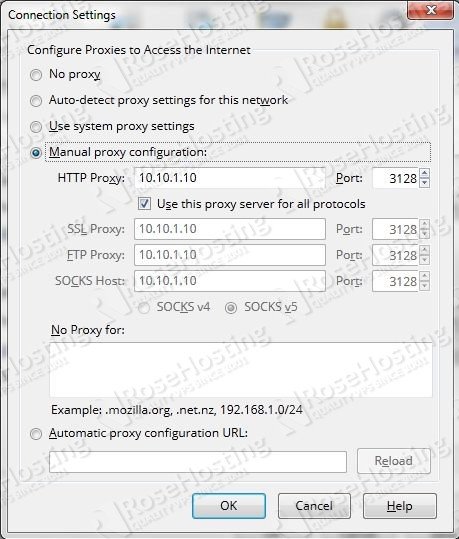
Table of Contents
Squid Installation
apt-get update apt-get install squid
Squid Configuration
Open the squid3 configuration file and add the following lines under the http_access block, right after the “# INSERT YOUR OWN RULE(S) HERE TO ALLOW ACCESS FROM YOUR CLIENTS” line.
nano /etc/squid/squid.conf acl mynet src 192.168.0.23 http_access allow mynet visible_hostname your.domain.com
Where ‘192.168.0.23’ is your local computer’s IP address.
Restart squid service:
/etc/init.d/squid restart
Browser Configuration
In Firefox, go to Options -> Advanced -> Network -> Connection and click on the Settings button
Where ‘10.10.1.10’ is the IP address of your Debian VPS.
PS. If you liked this post please share it with your friends on the social networks using the buttons on the left or simply leave a reply below. Thanks.
